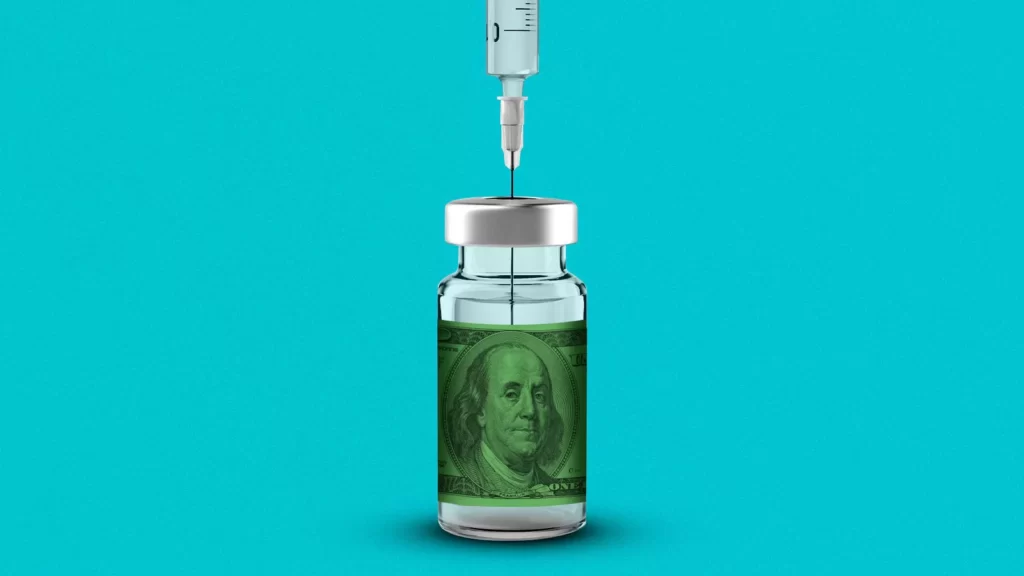Sophia Cai
The Senate is zeroing in on legislation to lower the cost of the insulin — a lifeline for millions with diabetes.
Why it matters: The drug costs eight times more in the U.S. than 32 other high-income nations, according to a 2020 study commissioned by the Health and Human Services Department. A $35 monthly price cap would help many diabetics.
- As the Axios Vitals team points out, capping out-of-pocket insulin costs — a narrow sliver of President Biden’s stalled Build Back Better package — might be the only way for Democrats to show they’re capable of passing something on prescription drug prices before this fall’s midterms.
Driving the news: Senate Majority Leader Chuck Schumer plans to bring legislation to the floor just after Easter that would cap the out-of-pocket cost for insulin products at $35 per month, and take other steps to extend relief to diabetics.
- Sens. Susan Collins (R-Maine) and Jeanne Shaheen (D-N.H.) are finalizing their own bipartisan bill now that Shaheen has returned to work after a bout with COVID-19.
- Their legislation will be based on a 2019 bill the two introduced targeting the middlemen between health insurance companies and pharmacies, Collins told Axios.
- “We have a big advantage in that … we’ve got a bill that we can use as a basis and further refine,” Collins said.
- The New Englanders’ legislation would also build on Sen. Raphael Warnock’s (D-Ga.) own bill capping the cost of insulin at $35 per month.
Even some Republicans are interested in engaging on the issue, which affects voters across the political spectrum.
- “I’d be for some kind of regulation where we can help. Too many people paying thousands of dollars a month. I’m not big on regulating process, but that one’s costing a lot of people a lot of money,” Sen. Tommy Tuberville (R-Ala.) told Axios.
- Senate Minority Whip John Thune told Axios there’s “an interest in doing everything we can to bring drug prices down.”
- He said that includes “some efforts to get insulin prices down to that $35 number … without having to slap a cap, or have the government set price controls.”
The big picture: For years, lawmakers from both parties have tried to tackle the soaring cost of insulin.
- Former President Trump passed a rule in 2019 aimed at ensuring federally funded health centers were passing along discounted rates of insulin — but it was not implemented by the Biden administration.
- The Trump administration also negotiated with drug manufacturers and insurers the option for Medicare enrollees to sign up for prescription plans that set the maximum copy for insulin at $35 a month, an experimental program that remains today.
- Warnock’s legislation codifies it into law.
By the numbers: A recent Peterson-KFF Health System Tracker analysis found a $35 cap on insulin would benefit more than one-in-four insulin users in the individual and small group markets.
- The benefit would apply t0 one-in-five insulin users in large employer-sponsored plans.
But, but, but: Other Republicans, including Rep. Kevin Brady of Texas and Sen. Rick Scott of Florida, favor alternative approaches.
- They told Axios they see creating competition in the insulin markets as the key to driving down costs, and are unlikely to vote for any legislation that involves price controls.

Source: axios.com

